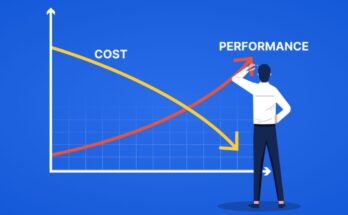Credit cards are an essential part of modern-day finance. They offer a convenient and secure way of making purchases, and they also come with a host of benefits such as reward points, cashback, and discounts. However, they also come with a significant downside – late payment fees and interest charges. In this article, we will discuss whether it is beneficial to pay only the minimum amount on your credit card and the consequences of late payment charges.
What is the Minimum Payment?
The minimum payment is the smallest amount you are required to pay on your credit card balance each month to avoid a late payment fee. This amount is usually a small percentage of your total balance, typically around 1-3%. For example, if you have a credit card balance of $1000, your minimum payment would be between $10 and $30.
Is it Beneficial to Pay Only the Minimum Amount?
While paying minimum on credit card may seem like a good option, it is not a financially sound decision in the long run. Here are some reasons why:
Interest Charges: If you only pay the minimum amount on your credit card, you will be charged interest on the remaining balance. Credit card interest rates can be as high as 30%, which means that you will end up paying a significant amount in interest charges.
Prolonged Debt: Paying only the minimum amount on your credit card will result in prolonged debt. The longer it takes to pay off your balance, the more interest charges you will accumulate, and the longer it will take to become debt-free.
Credit Score: Paying only the minimum amount on your credit card can negatively impact your credit score. Your credit score is based on your credit utilization ratio, which is the amount of credit you are using compared to the amount you have available. If you are only paying the minimum amount, your credit utilization ratio will be high, which can lower your credit score.
Also Read: What is Minimum Amount Due in Credit Card
What are Late Payment Charges?
Late payment charges are fees that are charged by credit card companies when you fail to make your minimum payment by the due date. These fees can range from $25 to $40 or more, depending on the credit card company and the amount of the late payment. Late payment charges can add up quickly and can be a significant expense if you are consistently making late payments.
Consequences of Late Payment Charges
Making late payments on your credit card can have several consequences, including:
- Additional Fees: Credit Card Late payment charges are not the only fees you may be charged if you miss your payment deadline. You may also be charged an over-limit fee if you exceed your credit limit or a returned payment fee if your payment bounces.
- Damage to Your Credit Score: Late payments can damage your credit score, which can make it difficult to obtain credit in the future. Late payments can stay on your credit report for up to seven years.
- Increased Interest Rates: Late payments can also result in increased interest rates. If you have a high credit score, you may be able to negotiate a lower interest rate, but if your credit score is damaged due to late payments, you may be stuck with a higher interest rate.
Conclusion
In conclusion, paying only the minimum amount on your credit card is not beneficial in the long run. It can result in increased debt, high-interest charges, and negatively impact your credit score. Late payment charges can also add up quickly and can have several consequences, including additional fees, damage to your credit score, and increased interest rates. Therefore, it is always best to pay off your credit card balance in full each month to avoid these negative consequences.




